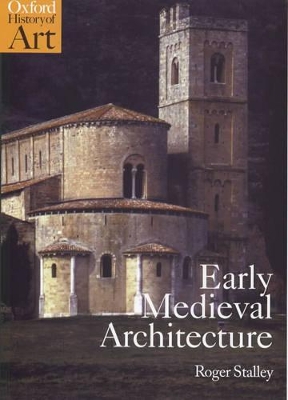Oxford History of Art
1 total work
The early middle ages were an exciting period in the history of European architecture, culminating in the development of the Romanesque style. Major architectural innovations were made during this time including the medieval castle, the church spire, and the monastic cloister. By avoiding the traditional emphasis on chronological development, Roger Stalley provides a radically new approach to the subject, exploring issues and themes rather than sequences and dates.
In addition to analysing the language of the Romanesque, the book examines the engineering achievements of the builders, and clearly how the great monuments of the age were designed and constructed. Ranging from Gotland to Apulia, the richness and variety of European architecture is explored in terms
of the social and religious aspirations of the time. Symbolic meanings associated with architecture are also thoroughly investigated. Written with style and humour, the lively text includes many quotations from ancient sources, providing a fascinating insight into the way that medieval buildings were created, and in the process enlivening study of this period.
In addition to analysing the language of the Romanesque, the book examines the engineering achievements of the builders, and clearly how the great monuments of the age were designed and constructed. Ranging from Gotland to Apulia, the richness and variety of European architecture is explored in terms
of the social and religious aspirations of the time. Symbolic meanings associated with architecture are also thoroughly investigated. Written with style and humour, the lively text includes many quotations from ancient sources, providing a fascinating insight into the way that medieval buildings were created, and in the process enlivening study of this period.
